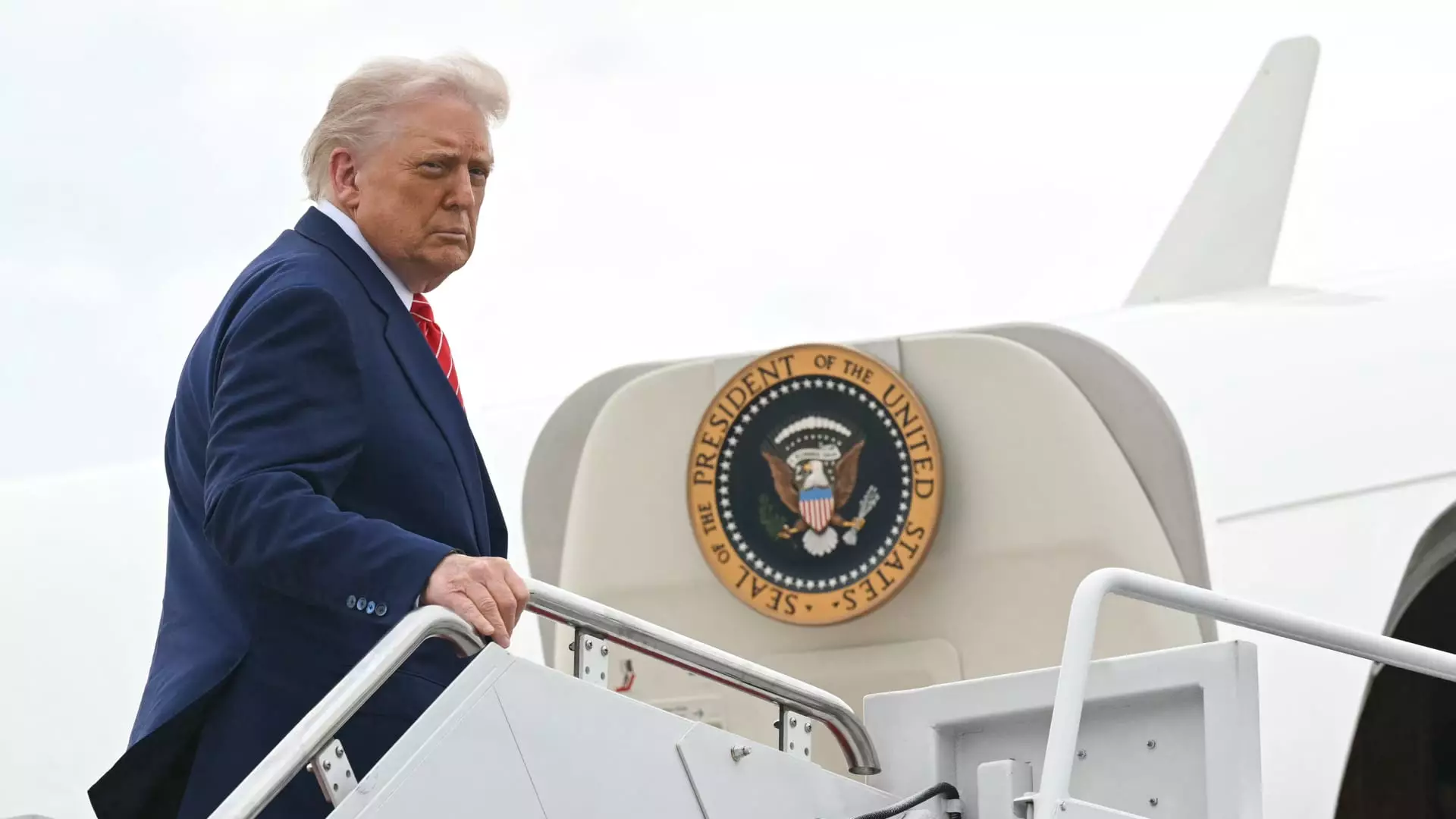In a striking demonstration of political defiance, President Donald Trump’s economic advisers have reiterated their unwavering faith in the persistence of tariffs, despite significant legal setbacks that question their legitimacy. Commerce Secretary Howard Lutnick’s declarations on “Fox News Sunday” reflect a broader strategy that appears more about ideological posturing than practical economic management. With a federal court ruling casting doubt on the legal framework that justifies these tariffs, the Trump administration’s appeal represents a desperate gamble, one that may ultimately hinge upon a sympathetic Supreme Court.
The recent judicial entanglement has led to a temporary pause in the ruling against Trump, granting his administration a fleeting respite from legal ramifications. Yet, this pause is merely superficial; underneath it lies a tumultuous whirlpool of potential litigation. The looming battles could ensnare not only economic policy but also redefine the boundaries of executive power. The reliance on the International Emergency Economic Powers Act (IEEPA) to enforce sweeping tariffs raises profound questions about presidential overreach—a concept that should provoke societal unease rather than comfortable complacency.
The Tariff Landscape: Flawed Beliefs and Unyielding Confidence
Amid the swirling chaos, National Economic Council Director Kevin Hassett expresses a dismaying certainty that the Supreme Court will support the administration’s tariff agenda. This misguided confidence demonstrates an unwillingness to confront the real-world implications of such policies. Hassett’s championing of the status quo, anchored in the myth of “making America trade fair again,” ignores the nuanced realities of global commerce and the intricate interconnectedness that has emerged over decades.
Tariffs, by their very nature, are a blunt instrument—typically designed to alter economic behavior through punitive measures, yet often resulting in unintended consequences. Businesses and consumers alike suffer under the weight of inflated prices, with the agricultural sector feeling the brunt of retaliatory measures from trading partners. In a global market, the notion of unilaterally imposing tariffs not only undermines traditional alliances but also shifts the economic landscape toward a more isolationist viewpoint. Were these tariffs to be endorsed by the Supreme Court, it wouldn’t just be a win for Trump but a symbolic step toward legitimizing volatility in international economic relations.
Beyond the Courtroom: The Impacts of Combative Trade Policies
While Trump’s administration paints a picture of national emergency rooted in trade deficits, the framing fails to adequately address the complexities that contribute to these deficits. The continual push for tariffs as a protective measure makes the fatal assumption that isolation will foster growth; however, this view remains dangerously simplistic. The claims that international adversaries will use tariffs to “hold our nation hostage” are ultimately rhetorical flourishes meant to galvanize support from a base eager for strongman politics, rather than reasoned discussions about the economy.
One cannot ignore the fragility of this proposed trade strategy. If courts were to strike down the tariffs, as their rationale suggests they might, the repercussions would extend far beyond the financial sphere. It would signal to foreign nations that America is unpredictable, undermining our ability to engage in meaningful negotiations and risking further alienation on the world stage. Rather than enhancing bargaining power, these tactics may lead to global retaliation, spiraling the U.S. into a more pronounced economic downturn.
A Call for Rational Discourse
As the legal battle unfolds, it is vital to advocate for a response grounded in reason rather than fear-mongering rhetoric. The focus should shift to reform rather than retribution—rethinking how the U.S. engages with the global market. A sane response to our economic shortcomings involves diplomatic negotiation processes and collaborative frameworks, not a trade war marked by hostility.
The ongoing struggle surrounding Trump’s tariffs is emblematic of a deeper ideological conflict—a clash between a vision of America that seeks dominance through unilateral action versus a country that recognizes its role in a cooperative global economy. As citizens, we must demand more from our leaders than the simplistic promise of protectionism; we must reject narratives that serve only to polarize and distract while damaging the very fabric of our economic integrity. The way forward lies not through a lens of tyranny but rather through the pursuit of mutual benefit and shared prosperity.


Leave a Reply